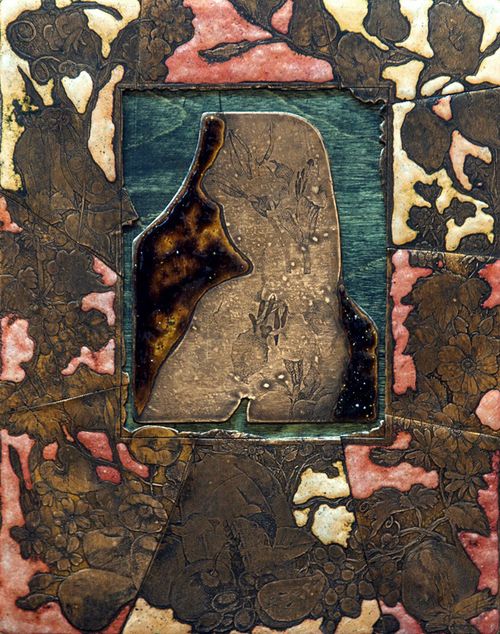Popular Ukrainian graphic artist presented 15 new works, specially created for Triptych Gallery. Oksana Stratiichuk’s new project, “Gardens and Plants,” presents graphic and enamel works dedicated to vegetative topics.
“In a crucial time for our country Oksana, a friend of our gallery, managed to mobilize her inner power and implement technically complicated sketches in artistic forms,” director of Triptych Gallery, art expert Yevhenia SMYRNOVA, told The Day. “Stratiichuk’s admirers know well the vegetative topics that are present in her works. Her first flowers sprouted on paper in series of still lifes back in the end of the 1990s. From mixed compositions, which united fruit, plants, and shapes, Oksana gradually moved on to floristic still lifes, inspired by Dutch masters. The baroque luxury of bouquets in the following series of works of the artist was replaced by refined elegance of Japanese gardens. The rich fruit-flowers, fleshly and tangible in the series of still lifes, gave way to symbolic plants, artistic generalizations of the floral image, which are meant purely for aesthetic and philosophical observation.”

A POND, ENAMEL
Herbarium is a metaphorical generalization, as people try to cognize and classify nature as they like. A plant placed in a herbarium is a model flower, in a sense, its symbol and a fleshless template, which carries a sum of the most important data. Or a sword lily is an incredible lightness of tender petals; dahlia is a thick geometry of inflorescence and abstraction of leaves; lilies, daffodils, tulips, roses, and primroses… The artist gathers a catalog of her own, a separate profile for every plant which attracts her attention not only as an artist, but also as a kind of a botanist from an etching.

A MORNING STILL LIFE, ENAMEL
European town gardens historically originated namely from the pharmaceutical gardens at the monasteries. Gardens, which we know as centers of nature arranged by people out of aesthetic considerations, at first were created with utilitarian aim – to grow medicinal plants, which before that entered the herbarium-catalogs of monk-scholars. Unintentionally repeating the historical path of development of the gardening culture, Oksana Stratiichuk finalizes the collection of a herbarium of her own and takes up the creation of gardens from chosen plants. Flowers cover the sheets like models, defining specific segments of the garden, and sheets cover the walls like carpets, creating a wonderful garden in the premises: a rose corner is on the left, next to the tulip valley, an olive grove is somewhat to the right, and further a pond invites for rest in a peaceful garden in the center of a fatigued city.
The exhibit of Oksana Stratiichuk’s works from the series “Gardens and Plants” will be open till April 2.







